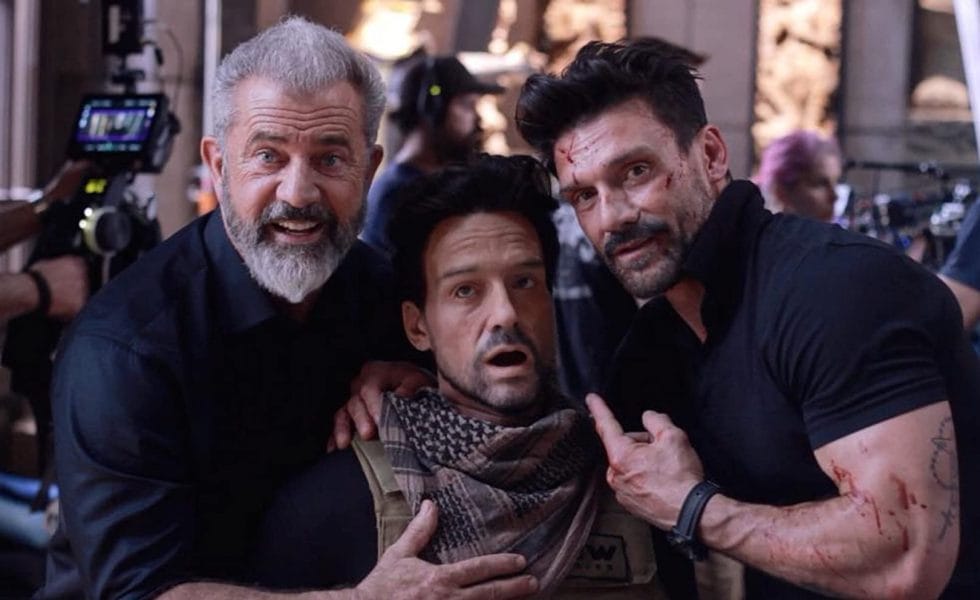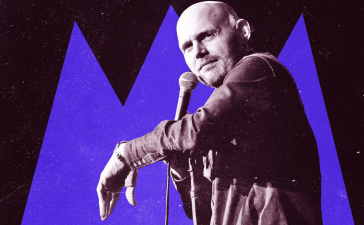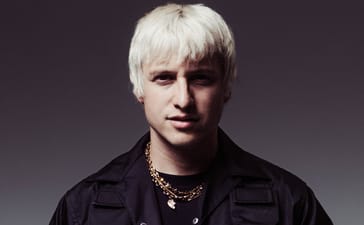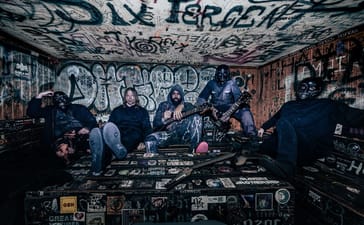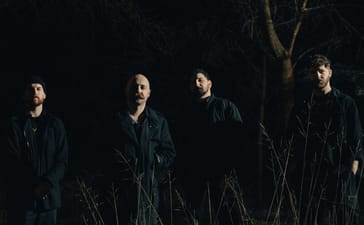The action movie mainstay takes us through his latest collaboration with director and producing partner Joe Carnahan, the time loop actioner Boss Level.
You’ve seen Frank Grillo somewhere. You know that face.
If you’re a fan of mid-budget indie action fare (as the author certainly is) Grillo is a household name, having shot and punched his way through two Purge movies, and fought off an alien invasion in the delightfully insane Beyond Skyline. He gave Liam Neeson grief in the survival drama The Grey, went toe to toe with Mel Gibson’s vengeful father in Edge of Darkness, and even took on Captain America in The Winter Soldier and Civil War.
He’s kind of a modern-day Charles Bronson or Lee Marvin – the sort of gruff and grizzled actor who may not attract much in the way of critical plaudits, but who excels in bringing real depth and gravitas to a wide array of tough guys, whether hero or villain, lead role or support.
His latest film sees him firmly in leading man heroic mode. In Boss Level, Grillo plays retired special forcers operator Roy Pulver, who finds himself stuck living the same day over and over again. Unlike Bill Murray, he’s not stuck in Punxsutawney; rather he has to fend off a veritable army of heavily armed assassins until one inevitably punches his ticket. How did he get here? Could it have something to do with his scientist ex-wife (Naomi Watts), her boss, the sinister Colonel Ventor (Mel Gibson), and the weird Hadron-like machine they’re building? Almost certainly, and it’ll take a lot of violence to figure out exactly how.
It’s a project literally tailor-made for Grillo – he and Carnahan produced the film through their company War Party. Blunt Magazine was lucky enough to get some time with Grillo to talk about the film, his action heroes, and what the future holds.
I understand Joe Carnahan has been developing Boss Level for years. How did you first come on board and what appealed to you about it?
After Joe and I did The Grey he gave me the script, which at the time was called Continue, and I was like, ‘Bro, this is amazing, but we’re never going to get it made with me.” Maybe Tom Cruise, but it’s not going to be made with me. But he said, “I’m not doing this movie unless I’m doing it with you.” So, we tried to get it made, but it didn’t happen. Some years passed, we both went our separate ways, but we both stayed friends. Then we did a movie called Wheelman for Netflix and started our production company from that. We made a bunch of movies and then we said, let’s go try to get Boss Level/Continue back. And I don’t know how we did it, but we got the property back and pretty soon after that we found financing and we made the movie.
How does what we see on screen now differ from the initial conception?
[Screenwriters] the Borey Brothers had a great original idea and script and I gotta tell you: we updated some of the jokes and stuff, but it’s pretty much the same bones and we wanted to keep it that way. It’s an homage to those big over the top ‘80s action films that we love so much. It’s 90 minutes of “forget about your life and watch this movie and have some laughs” and it’s fun.
You were producing as well as acting on this one. What kind of additional pressures were on you in that role?
Here’s the struggle: about three days before we started shooting, we had 42 or 43 days and they cut us to 27 and they said, look, you got 27 days or you can go home. And we’re like, okay, we got 280 people here: we’re not going to let them lose their jobs – let’s go make the movie in 27 days.
We pulled everybody together and we became even closer and we pulled it off, but I have to tell you as producers we were under a really great deal of pressure every day. But we made a commitment that when we were on set shooting the film, creatively we would never let that get in the way. And we pulled it off! I mean, we both had PTSD by the end of it and I never want to do it again, but we pulled it off and we learned – it was like getting a PhD in filmmaking.
Is producing for you a way for you to take greater control of your career? To make sure that you’re making the kind of movies that you want to make and getting the roles that you want to play?
Hundred percent, man. Look, I can sit around and wait for the calls, for the offers that really get me excited, and I’d probably be working once every 18 months. Or at this point Joe and I have enough goodwill and credibility to go out and create our own business and that’s what we do. I mean, we’ve made six movies, we have four more movies in different stages that are about to be green lit, and we’ll do other things separately, but our company, War Party, is always involved on the production side of whatever we do. It’s a great way to take control of my career and work with the person that I trust the most and want to work with. And then we get to hire all of our friends. It’s really great.
This film sees you reteam with Mel Gibson again after Edge of Darkness. How did you find working with him again?
I was a huge Mel Gibson fan before both as an actor and as a director, but on this movie specifically Mel and me and Joe became really great friends. He was a great asset in that he, as a director, helped in the process. I have to tell you, I just talked to Mel the other day. He did some press with me and he was like, “I still don’t know how you guys did that movie in 27 days.” And you know, this is the guy who directed Braveheart but he was like, “You guys should teach a masterclass on how to make a movie with no time.” It was kind of cool: one of our heroes is looking at us and saying, “Wow, I’m kind of impressed in what you guys did.” Look, to me, I’m always like a little kid. I’m like, “Wow, Mel Gibson’s calling me. That’s kind of cool.”
As an actor, and particularly as an action performer, how do you approach a time loop scenario where you’re going through the same beats, movements, and sequences over and over again?
The lazy way to do a time loop movie is to just really show over and over again, the same thing, right? But Joe and I said, we’re not doing that; we’re not making the lazy version of anything. What Joe and I would do is we would make slight changes; ever so slight nuances would be different from take to take just so we could string it together. You could tell that it’s the same, but it’s not the same. And it was fun! It’s fun to do that because it’s gotta be subtle and doing things subtly is more difficult and things that are more difficult make it more challenging. And to me, when it’s challenging, it’s worth doing. It was a blast.
You’ve played leading roles before, but this is almost a hundred percent you on camera the entire time, plus you’re doing voice over narration, and you’re carrying the entire film. Was that intimidating at all?
Nah, it always felt good. I know what I’m capable of, I know what I’m not capable off, and I knew I was capable of doing this with Joe. Our first movie was Wheelman, which was just me in a car for 90 minutes, and we made it work. I knew I could do it. And it’s a matter of getting your shot. It’s a matter of the coach saying, “Hey, it’s your turn with the ball,” you know what I mean? So, you better be ready. And I think I’ve been ready for a long time for this, and I just needed the opportunity to get the ball.
Who are some of your acting role models? Both in terms of dramatic work and action work, which has its own challenges, who are the guys you look up to?
I love everybody from Spencer Tracy to Marlon Brando to Gene Hackman. You know, I’ve recently become friendly with Al Pacino – phenomenal actor. And I could throw De Niro in there.
As far as action, I love Sylvester Stallone. You know, again, he’s become a friend too, but I’ve always loved what Sly did with the action genre. I love what Arnold Schwarzenegger did. Those guys weren’t necessarily the greatest actors, but they understood action and the physicality that was the language [of action films] in itself. But then there’s guys like Bruce Willis who are good actors and they could execute the action.
I studied these guys. You learn a lot from those guys; there are no accidents in success. You follow the guys who have been successful, and you understand that there’s a method to the madness, and I just try to emulate that.
What else have you got coming up soon? What’s on the radar?
I have The Hitman’s Wife’s Bodyguard with Ryan Reynolds, Antonio Banderas, and Sam Jackson – that’s coming out. I have a movie called Ida Red with Josh Hartnett and Melissa Leo. I have another movie with Naomi Watts and Bobby Cannavale, a drama, called Once Upon a Time in Staten Island – that’s coming out. I have a bunch of movies; some of them are really good, some of them are really not, but the ones that I mentioned I’m really excited about and proud of.


